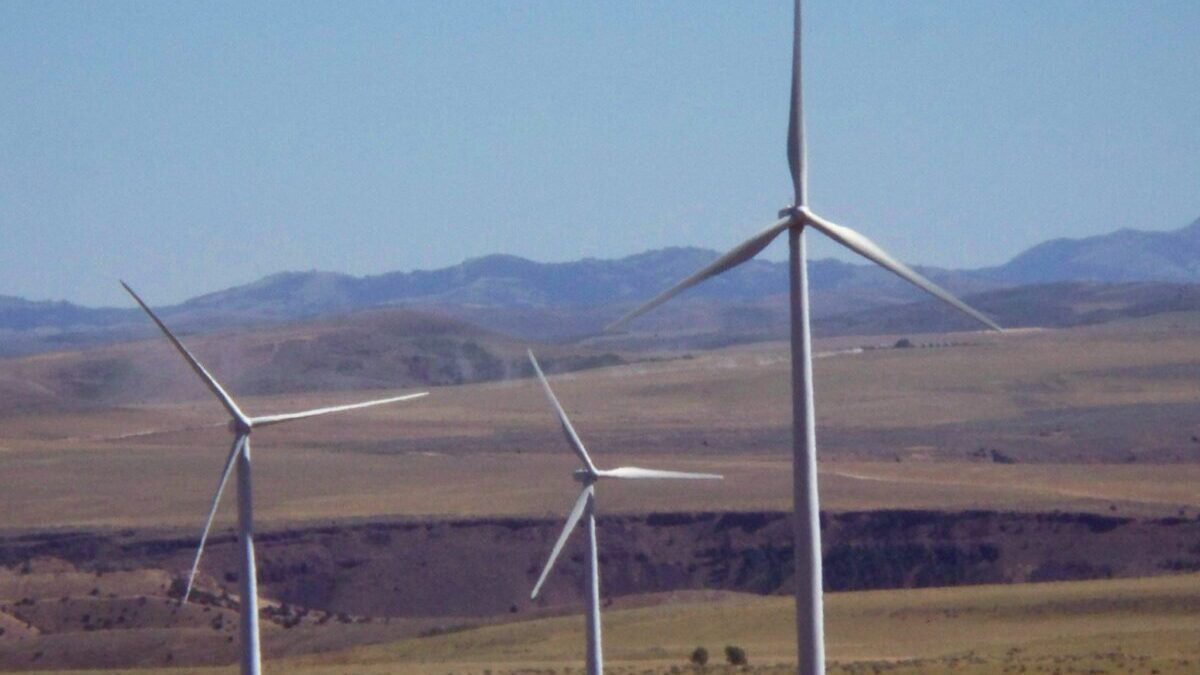On the same day Democrats demonized oil producers on Capitol Hill, a wind power company was ordered to pay more than $8 million in fines after its operations killed at least 150 eagles across eight states over the last decade.
The company subsidiary of ESI Energy, NextEra Energy, was sentenced in Cheyenne, Wyo., Wednesday to three violations of the Migratory Bird Treaty Act on wind farms in Wyoming and New Mexico, each based on the deaths of golden eagles “due to blunt force trauma from being struck by a wind turbine blade,” according to a press release from the Department of Justice.
Rather than be charged in the deaths of all 150 birds, which included Bald Eagles, the company only bears penalties for killing several golden eagles after its guilty plea. In addition to the $8 million-dollar payout, the company will be required to implement sweeping changes costing up to $27 million at wind farms where eagle deaths occurred in Wyoming, New Mexico, Florida, California, Colorado, Arizona, Michigan, Oregon, North Dakota, Illinois, and Kansas.
The Bald and Golden Eagle Protection Act makes it illegal to kill or harm the birds with fines up to $100,000 for individuals and $200,000 for organizations, complemented by possible jail time on the first offense. Under the agreement struck with the Justice Department, however, ESI Energy will be charged $29,623 for each eagle fatality under the Migratory Bird Treaty Act. While companies may apply for permits to escape responsibility for unavoidable deaths, the company did not possess the permission needed and dismissed warnings in Wyoming and New Mexico that their turbines could kill the birds, according to court documents reported on by the Associated Press.
Bald Eagles were delisted as an endangered species in 2007.
“The Justice Department will enforce the nation’s wildlife laws to promote Congress’s purposes, including ensuring sustainable populations of bald and golden eagles, and to promote fair competition for companies that comply,” said Assistant Attorney General Todd Kim of the Justice Department’s Environment and Natural Resources Division in a DOJ press release. “For more than a decade, ESI has violated those laws, taking eagles without obtaining or even seeking the necessary permit. We are pleased to see ESI now commit to seeking such permits and ultimately ceasing such violations.”
The deal’s announcement comes as Democrats aggressively push to replace reliable energy in the form of coal, oil and natural gas with wind and solar, even as power prices skyrocket from White House suppression of fossil fuel production.
On Wednesday, House Democrats cast blame on the major oil companies represented before the Energy and Commerce Committee for the record-breaking gas prices amid 40-year inflation. The Biden administration, however, remains apathetic on thousands of drilling permits with reported plans to delay oil leases in the Gulf of Mexico for a third consecutive year. The overt hostility to fossil fuels by an administration doing everything in its power to avoid unleashing the nation’s vast oil and gas reserves has killed the industry’s financial incentive to pledge billions to ramp up operations.
The environmental consequences of wind power remain often overlooked amid focus on emissions from fossil fuels organically brought down by decades of market innovation. Although the number of birds killed by wind turbines is comparably small to those killed by cats and windows, their remote locations make rarer birds more susceptible to the spinning blades.
One solution touted by environmentalists is the intermittent shut down of turbines at times when the danger to birds is higher. Yet this only elevates the unreliability of wind power as a viable alternative to fossil fuels, as wind already produces a fraction of the electricity generated by conventional resources.









